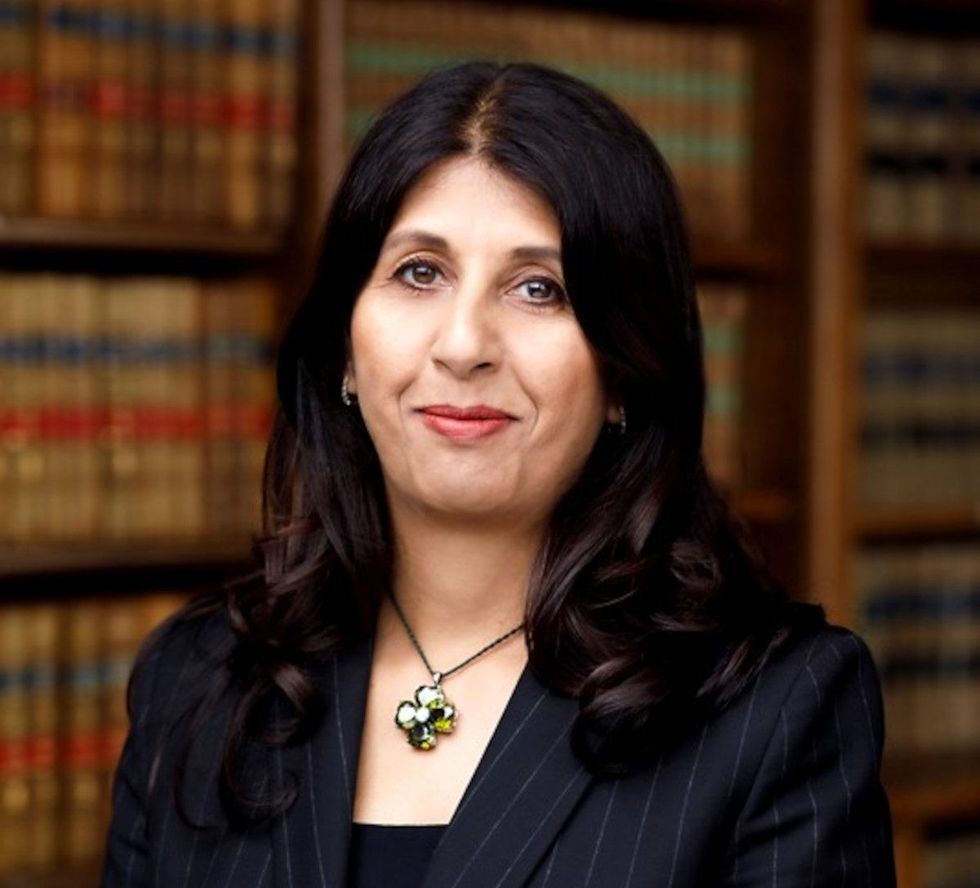THE government’s recent anti-lawyer rhetoric is not new. It has used this in the past, unfairly describing lawyers as “lefty” and “activist.”
This loose language is damaging to the vast majority of lawyers who work hard to uphold the rule of law and act in the best interests of their clients.
The Law Society recognises there is a genuine problem in relation to a very small number of lawyers potentially acting dishonestly. We fully support all action taken against them by the government and the regulators. It is quite right that they should be dealt with robustly and appropriately.
However, it is wrong to conflate their potential misconduct with the work of the vast majority of lawyers, whose job is to hold the government to account when challenging its decisions.
Last week the government attempted to get its plans back on track to stop Channel crossings.
This included the opening of the highly controversial Bibby Stockholm barge, which can accommodate 500 people as they wait for their asylum claims to be processed.
Asylum seekers have already spoken to the media about their experience, with one person telling the BBC: “Many of us entered Britain nine to 11 months ago, by airplane. Some of us applied for asylum at the airport. We did not come by boat.”
The Bibby Stockholm episode is one example of how the government is trying, but failing, to address concerns with the asylum system. What it needs to do is fix the UK’s immigration issues wholesale.
Government statistics show that in March 2023, there were 172,758 people waiting for asylum decisions (including dependants). The number of asylum seekers waiting longer than six months for a decision currently stands at 128,812. Many cases are now taking over a year to conclude.

There are also problems with the processing of asylum claims. There are issues with the poor quality of decision making by home office officials. This is evident from the high success rate on appeals against their decisions. Despite a 62 per cent increase in the number of caseworkers over the last 10 years, decision making rates have fallen. All of this means that people are waiting far too long for their cases to conclude.
The Illegal Migration Act is likely to make a bad situation even worse. A new category of asylum limbo will be created, with people who cannot be removed, because there is no agreement in place to return them to their country of origin while awaiting a decision, and who are also denied the ability to resolve their legal status in the UK. The agreement with Rwanda is pending the outcome of an appeal to the Supreme Court. Even if the finding is in favour of the agreement, Rwanda alone will not be sufficient to deal with the number of outstanding cases.
The vast majority of immigration solicitors are honest, hardworking and act with integrity when advising clients in accordance with UK law. This may mean challenging government decisions. The government is not above the law and it is important that it is held to account.
We are seriously concerned by the experience of immigration solicitor Jacqueline McKenzie, who was the victim of a personal and inaccurate smear campaign, apparently originating from the Conservative Party’s headquarters.
No lawyer should be criticised, or made the subject of a targeted campaign, just for doing their job. Everyone is entitled to legal representation. It is a United Nations basic principle that lawyers should not be identified with the causes of their clients just because they represent them.
That is why – as we have said repeatedly – it is wrong and dangerous to describe lawyers as “lefty” or “activist” simply based on the cases they advocate on behalf of their clients.
Lawyers who represent their clients are doing nothing wrong. They are doing exactly what they are supposed to do, playing their part in ensuring that everyone acts lawfully. The rule of law means the law applies to everyone and no one is above the law.
McKenzie has been doing exactly what she is supposed to do as an immigration solicitor, acting in the best interests of her clients within the constraints of the law.
Political leaders know that lawyers represent their clients within the legal framework that parliament creates. Politicians and the media should seriously reflect on the consequences of words they use. Language and actions that unfairly undermine trust and confidence in the legal profession, and potentially put at risk the safety and independence of lawyers, ultimately undermines confidence in our entire justice system and the rule of law.




‘Anti-lawyer rhetoric risks damaging justice system’
Legal professionals must not be targeted for doing their job, says expert